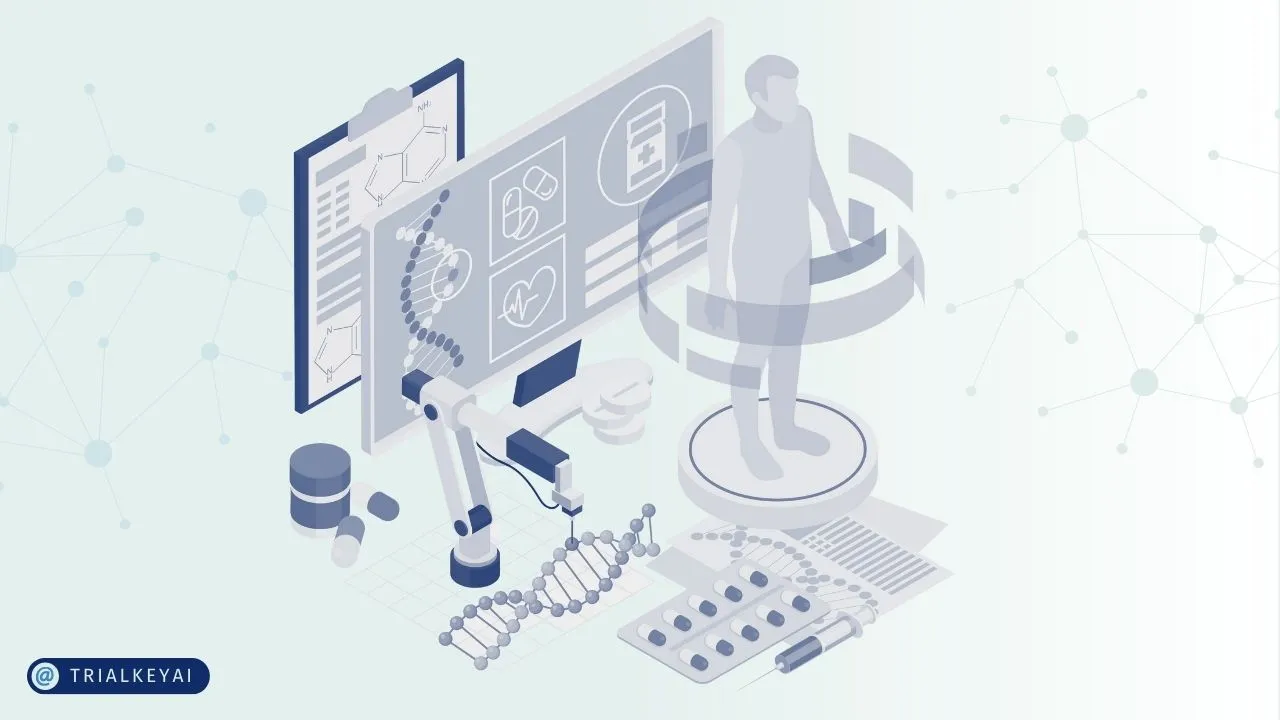Today’s landscape of modern medicine and technological advancements have continuously revolutionized the way healthcare is practiced. Among these innovations, artificial intelligence (AI) in medicine stands out as a game-changer, particularly in the realm of medical research and clinical trials.
Consistently, a survey by the Health Management Academy concluded that 47.5% of C-suite healthcare executives are currently using AI solutions for back-office processes, clinical operations, and clinical care. Meanwhile, another 52.5% reported that their health system is considering the implementation of AI for the same purposes.
These figures only prove that AI is becoming an essential part of the healthcare industry, particularly clinical research. With its ability to analyze vast amounts of data, identify patterns, and generate insights, AI is reshaping the landscape of clinical research, accelerating the pace of discovery, and ultimately improving patient outcomes.
AI in Medicine: Revolutionizing Clinical Research
In medicine, AI’s capabilities extend far beyond mere workforce task automation. Rather, it has become a powerful tool for augmenting human decision-making and driving innovation. The utilization of AI in medical research and clinical trials represents a paradigm shift, enabling researchers and clinicians to harness the potential of big data and predictive analytics.
Clinical research, being the cornerstone of medical advancement, provides crucial insights into disease mechanisms, treatment efficacy, and patient outcomes. Traditionally, conducting clinical trials are often plagued by challenges such as recruitment delays, data management issues, and high costs. However, AI offers solutions to these obstacles by streamlining various aspects of the research process.
One of AI’s key contributions to clinical research lies in patient recruitment and selection. Through sophisticated algorithms, AI can analyze electronic health records, genetic profiles, and other clinical data to identify eligible participants more efficiently. This not only expedites the recruitment process but also ensures the enrollment of diverse patient populations, enhancing the generalizability of study findings.
Moreover, AI-powered predictive analytics play a vital role in optimizing trial design and protocol development. By analyzing historical data and simulating different scenarios, AI algorithms can identify potential risks, predict patient outcomes, and recommend adjustments to study protocols in real-time. This proactive approach not only enhances the safety and efficacy of clinical trials but also reduces costs and accelerates the drug development process.
In fact, a study by Accenture highlights that AI applications in healthcare have the potential to generate $150 billion in annual savings for the healthcare economy by 2026. This emphasizes how AI-driven platforms are effective in streamlining trial processes, optimizing resource allocation, and minimizing operational costs. As a result, healthcare industries experience substantial efficiency gains and cost savings for industry stakeholders.
AI’s Contribution to Medical Research
In addition to streamlining clinical trials, AI is revolutionizing medical research by accelerating the discovery and development of new treatments and therapies. This can be seen through the following areas of clinical research and operations:
- Personalized Treatment Planning: AI algorithms can analyze patient data, including genetic information, medical history, and lifestyle factors, to tailor treatment plans that are personalized to every individual’s unique needs and characteristics.
- Early Disease Detection: AI-powered diagnostic tools have shown remarkable accuracy in detecting diseases such as cancer, diabetes, and cardiovascular conditions at earlier stages, enabling prompt intervention and improved patient outcomes.
- Drug Repurposing: By analyzing large datasets of existing drugs and their molecular profiles, AI can identify potential candidates for repurposing, accelerating the development of new treatments for various diseases and conditions.
- Real-Time Monitoring and Alerts: AI-enabled monitoring systems can continuously analyze patient data from wearable devices and electronic health records, providing real-time alerts and insights to healthcare providers, thereby enabling proactive intervention and prevention of adverse events.
- Enhanced Clinical Decision Support: AI algorithms can assist healthcare professionals in making more informed clinical decisions by analyzing patient data, medical literature, and treatment guidelines to recommend optimal diagnostic and treatment strategies.
- Streamlined Administrative Processes: AI-powered administrative tools automate tasks such as appointment scheduling, billing, and medical coding, freeing up healthcare staff to focus on patient care and reducing administrative burden.
- Improved Patient Engagement: AI-driven virtual assistants and chatbots enable patients to access personalized health information, receive medication reminders, and engage in remote consultations, leading to better adherence to treatment plans and improved health outcomes.
- Drug Safety Monitoring: AI algorithms can analyze real-world data to identify potential adverse drug reactions and safety concerns, enabling regulatory agencies and pharmaceutical companies to monitor drug safety more effectively and take timely corrective actions.
Empowering Clinical Trial Organizations and Pharmaceutical Manufacturers
In the era of precision medicine, the volume and complexity of healthcare data have grown exponentially, presenting both opportunities and challenges for researchers and pharmaceutical manufacturers. AI excels in processing and interpreting these vast datasets, uncovering hidden insights that may have otherwise remained elusive. The integration of AI undeniably represents a game-changing opportunity to enhance decision-making, mitigate risks, and optimize resource allocation.
Machine learning algorithms, a subset of AI, are particularly adept at extracting meaningful patterns from diverse sources of data, including genomics, imaging, and patient records. By analyzing these datasets, AI can identify biomarkers, predict disease progression, and stratify patients based on their likelihood of responding to specific treatments. This personalized approach to medicine holds immense promise for tailoring therapies to individual patients, maximizing efficacy, and minimizing adverse effects.
Looking Ahead: The Future of AI in Medicine
As AI continues to evolve, its role in medical research and clinical trials will undoubtedly expand, ushering in a new era of innovation and discovery. From predictive analytics to personalized medicine, AI-driven platforms are empowering researchers, clinicians, and industry stakeholders to accelerate the pace of medical advancements and bring life-saving therapies to market faster than ever before.
The integration of AI into medical research and clinical trials has been fostering a transformative shift in the healthcare landscape, with a far-reaching impact on patient care, drug development, and public health.
By leveraging AI’s capabilities to analyze big data, optimize trial design, and personalize treatment strategies, researchers and clinicians can accelerate the pace of discovery and improve outcomes for patients worldwide. As we navigate this exciting frontier, it is imperative to uphold rigorous standards of safety, transparency, and ethical conduct, ensuring that AI remains a powerful ally in the quest for better health and well-being.







